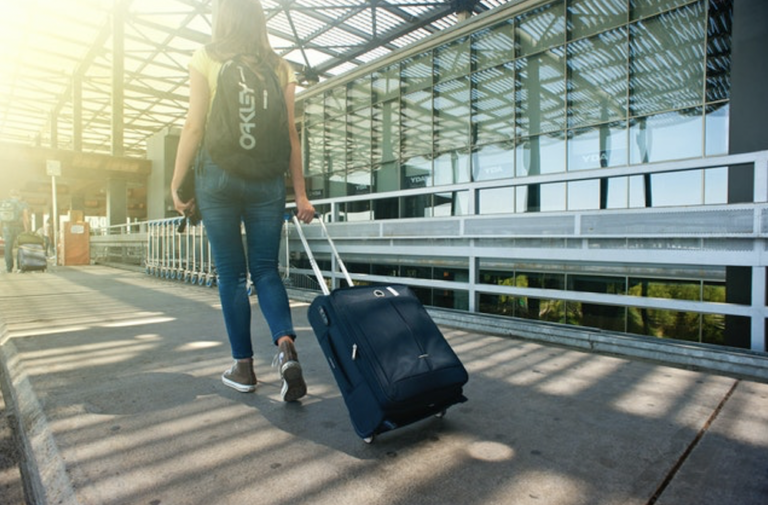
What to Prepare?
“Do digital nomads need work visas instead?” Though it is not technically allowed to “work” on a simple tourist visa, as a norm, entering a country with only a visitor/tourist visa is fine if you’re a digital nomad, because you’re NOT really working for a ‘physical business’ in that country’s territory — you’re NOT also illegally taking away the jobs of the locals.
- Save up: There are many ways for you to lessen your expenses! Some people have gone to the extreme of selling all of their possessions, but if you don’t want to do that, you can simply manage your finances better or find a side hustle. For more ideas, you can read my article about how to save money for a life of travel.
- Stabilize your remote income first: This is a case by case basis and it’s definitely a conservative approach; however, it’s a lot better to be prepared than not. So when I made the decision to quit my job and do remote work, I did NOT quit ASAP. I decided to juggle both at the same time — working on my office job and working on my online work. Once I earned more than triple of my office salary as well as scored an online work contract, I knew that I was ready to set off and hand in my resignation! If you rather want to build an online business, make sure that everything is set and that you’re making money so that everything’s smooth sailing.
Customarily, however, you pay taxes in your home country (especially if you’re still under the definition of being a resident); but once you stay in a foreign country for a longer period of time, make it a point to recheck your tax situation since it might be required for you to pay additional taxes to where you’re planning to stay in for long.
GADGETS. Depending on your line of work, you need to identify the items that you need to save up for and buy. Some of the basic items you’ll need for your remote work lifestyle are a high-performing laptop, an unlocked smartphone that you can take anywhere, a hard drive for storage/backups (or DropBox can already work), a VPN for browsing privacy, and theft protection software.
All in all, I can’t provide one universal answer for this because every situation is different as dependent on your nationality or country of origin — so again, it’s advisable to seek out a professional’s advice.
TIP: When you’re at the immigration counter, just say that you’re entering the country for tourism purposes. No need to say something like “It will be my new base as a digital nomad” because not a lot of people are that familiar yet with this line of work, and if you say something weird to their ears, they might misinterpret your words and then forbid you to enter their country.
.
But surely, if they ever ask about your work, it’s best to just mention that you are a self-employed freelancer or business owner (as dependent on the work that you do) and that you are paying tax and working for a company in your home country. This will be an assurance to them that you’re not heading to their country to search for work (even though “technically” you’ll be working there, but only ‘online’ thereby not affecting the local employment).
American citizens, for instance, are required to pay taxes even if they are abroad, unless they spend most of the year outside the USA and that they are paying taxes in a foreign country. This is why some people often register their business in more tax-friendly countries like Hong Kong, Cyprus and Singapore (who are also more lenient to accepting foreigner registrations). Additionally, you’ll also need the right travel gear!
(Customarily however, you pay taxes in your home country but once you stay in a foreign country for a longer period of time, make it a point to recheck your tax situation since it might be required for you to pay additional taxes to where you’re planning to stay in for long.)
Truth of the matter is, most countries do NOT have clear regulations yet for digital nomads but it’s generally tolerated and allowed (irregardless, it is your responsibility to research the laws of the foreign country that you’re heading to since they might have different or new laws that goes against this concept.)
VISAS: This is self-explanatory. As already mentioned above, always check first if you need a tourist visa to the country that you’re heading to.
TAXES. By now, you should. be a law-abiding citizen who is properly paying his/her taxes (quite important, if you ask me, because some visa applications as well as immigration centers need your tax documents). However, the dynamics of your taxes may change once you decide to do remote work abroad and it’s important that you consult with an accountant or tax expert about your situation.
- Estonia
- Costa Rica
- Croatia
- Dubai
- Germany
- …and more, check out my article about digital nomad visas
FUNDS. Travel naturally involves money, and though some people will leap into a travel lifestyle with little to no funds, it’s definitely not a good decision if you want to be a smart traveler. After all, sudden emergencies can happen abroad, and if you have nothing to fall back on, it’s gonna get messy. So hear me out! It’s best that you..
UPDATE: To date, I discovered that there are some countries who are open to providing work visas to digital nomads, namely…





